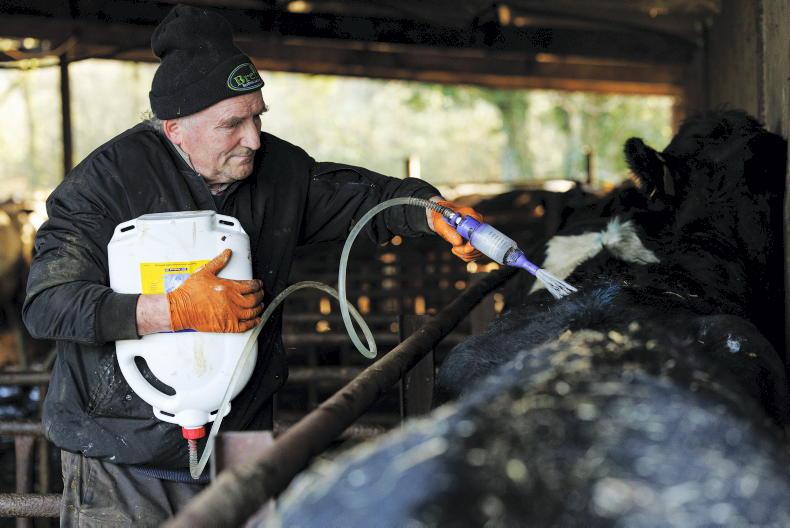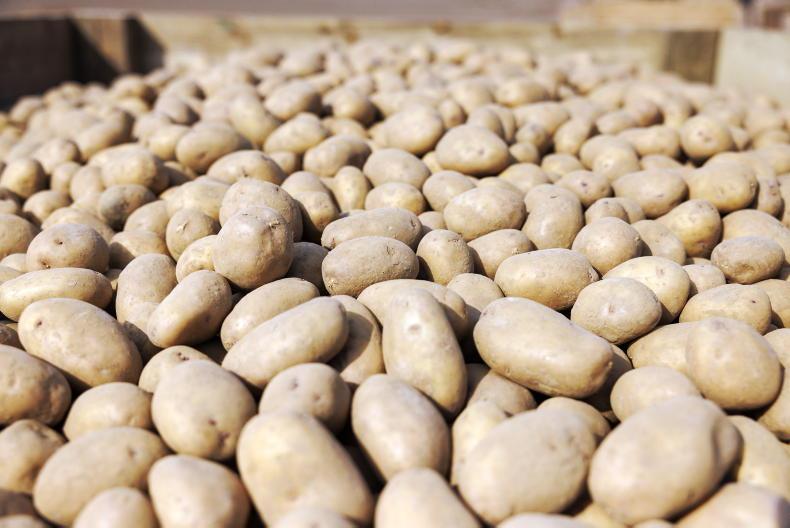"Change what you can change, adjust to what you can't change," community mental health nurse Paula McGovern advised more than 70 farmers at an ICSA meeting in Cavan on Thursday. She said this spring's fodder shortages were among the events that could hit farmers' mental health, just like the loss of a loved one or livestock, deterioration in physical health, or a failed inspection.
Such difficulties can cause farmers to worry excessively and react by asking "Why me?", but accepting and adjusting to the situation is the best way of getting out of it, she said. For example, selling cattle if fodder reserves are too low can be the best decision and "is not a failure", she added.
Listen to Paula McGovern in our podcast below:
According to the nurse, signs that you're not well include:
Low energy and constantly feeling tired.Worrying about every little thing.Withdrawing from others, for example when you're not stopping for a chat on the side of the road with someone you know because you don't feel able for the conversation.Difficulties with sleep.Excessive drinking, smoking or use of drugs.Worrying about what others think about you.If you meet this description, McGovern said it was important to realise that many others feel the same way and talk to someone about it.
While your GP is the best person to treat you or refer you to specialist services, you can also find a lot of support in your community from family, friends and other farmers. "Your peers know exactly what it is like to lose an animal," the nurse said. "You can help each other."
It's surprising how many people can help
While many farmers think they are the only person capable of doing all the work on their farm, McGovern encouraged them to identify people they can trust with some jobs and share the workload if they need to. "It's surprising how many people can help," she said.
Oliver Crowe of CC Agricultural Consultants called on farmers to resist the temptation of putting their head down and working flat out to get over difficult times. "Take several 15-minute breaks every day," he said – not only for mental health but also to prevent farm accidents.
McGovern agreed and said: "On their death bed, nobody wishes they'd worked harder."
Helplines
A representative of the regional suicide prevention organisation SOSAD attended the meeting and said a helpline was available 24/7 on 041-984 8754.
The following help support lines are also available:
Samaritans 24-hour support, phone 1850 609 090, delivered by volunteers.Pieta House helpline, 1800 247 247 (Monday to Friday, 9am to 6pm/ Saturday, 10am to 2pm).St Patrick's Hospital mental health helpline, 01-249 3333 (Monday to Friday, 9am to 5pm). Read more
'It’s the men and women I’m worried about - we’ll get fodder for cattle'
Bishop calls for prayers for the farming community in midst of fodder crisis
"Change what you can change, adjust to what you can't change," community mental health nurse Paula McGovern advised more than 70 farmers at an ICSA meeting in Cavan on Thursday. She said this spring's fodder shortages were among the events that could hit farmers' mental health, just like the loss of a loved one or livestock, deterioration in physical health, or a failed inspection.
Such difficulties can cause farmers to worry excessively and react by asking "Why me?", but accepting and adjusting to the situation is the best way of getting out of it, she said. For example, selling cattle if fodder reserves are too low can be the best decision and "is not a failure", she added.
Listen to Paula McGovern in our podcast below:
According to the nurse, signs that you're not well include:
Low energy and constantly feeling tired.Worrying about every little thing.Withdrawing from others, for example when you're not stopping for a chat on the side of the road with someone you know because you don't feel able for the conversation.Difficulties with sleep.Excessive drinking, smoking or use of drugs.Worrying about what others think about you.If you meet this description, McGovern said it was important to realise that many others feel the same way and talk to someone about it.
While your GP is the best person to treat you or refer you to specialist services, you can also find a lot of support in your community from family, friends and other farmers. "Your peers know exactly what it is like to lose an animal," the nurse said. "You can help each other."
It's surprising how many people can help
While many farmers think they are the only person capable of doing all the work on their farm, McGovern encouraged them to identify people they can trust with some jobs and share the workload if they need to. "It's surprising how many people can help," she said.
Oliver Crowe of CC Agricultural Consultants called on farmers to resist the temptation of putting their head down and working flat out to get over difficult times. "Take several 15-minute breaks every day," he said – not only for mental health but also to prevent farm accidents.
McGovern agreed and said: "On their death bed, nobody wishes they'd worked harder."
Helplines
A representative of the regional suicide prevention organisation SOSAD attended the meeting and said a helpline was available 24/7 on 041-984 8754.
The following help support lines are also available:
Samaritans 24-hour support, phone 1850 609 090, delivered by volunteers.Pieta House helpline, 1800 247 247 (Monday to Friday, 9am to 6pm/ Saturday, 10am to 2pm).St Patrick's Hospital mental health helpline, 01-249 3333 (Monday to Friday, 9am to 5pm). Read more
'It’s the men and women I’m worried about - we’ll get fodder for cattle'
Bishop calls for prayers for the farming community in midst of fodder crisis









SHARING OPTIONS